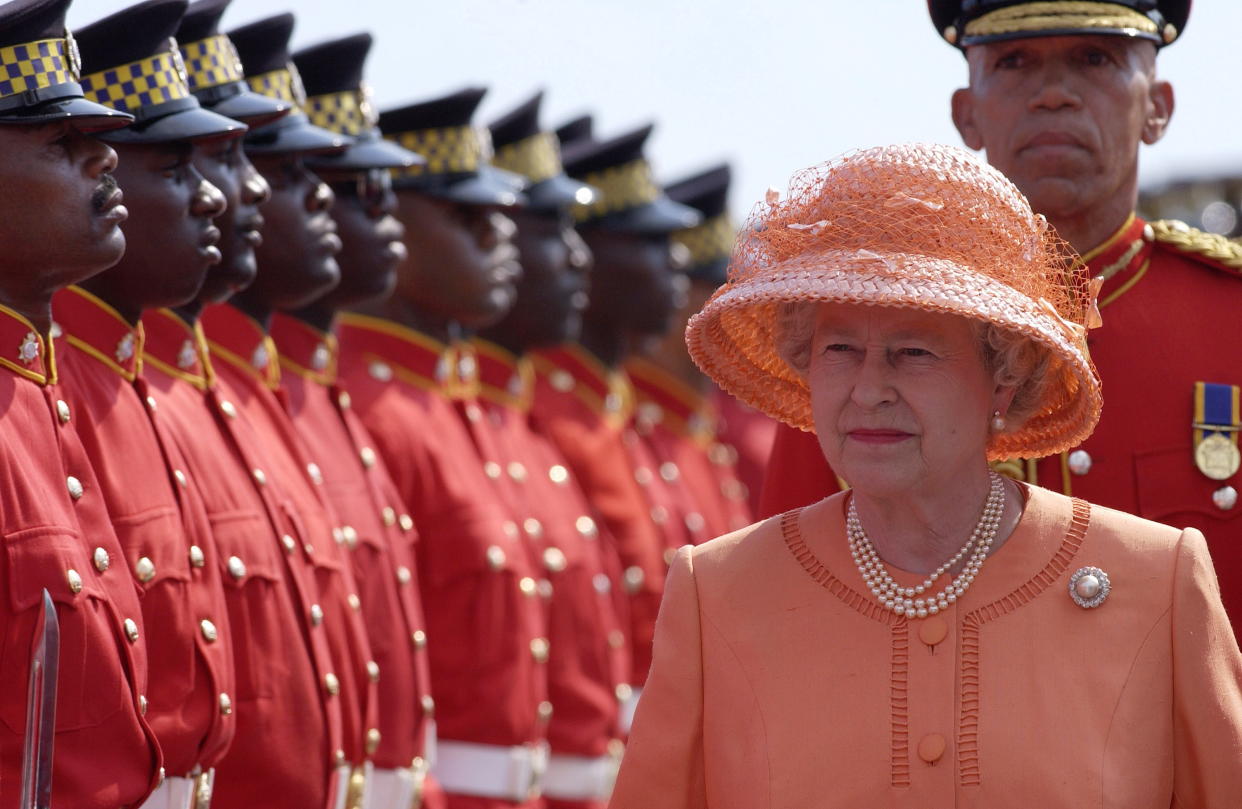Queen asked for millions of pounds in reparations over slave trade

Jamaica is to call on the Queen for millions of pounds in compensation for the transatlantic slave trade.
Olivia Grange, the culture minister in Jamaica, is set to present a petition to the Queen calling for financial compensation for the slave trade, which Britain was involved in.
The Queen is still the head of state and monarch in Jamaica, along with 14 other Commonwealth realms outside the UK.
Grange, minister of sports, youth and culture, told Reuters: "We are hoping for reparatory justice in all forms that one would expect if they are to really ensure that we get justice from injustices to repair the damages that our ancestors experienced.
"Our African ancestors were forcibly removed from their home and suffered unparalleled atrocities in Africa to carry out forced labour to the benefit of the British Empire.
"Redress is well overdue."

Read more: Why the Duchess of Cambridge will be Queen of sport
Jamaica was the centre of the slave trade, with first the Spanish, then the British, taking Africans there to work on plantations to make a fortune for their owners.
The Caribbean nation was a British colony from 1655 to 1962.
Britain banned the slave trade in its empire in 1807 but did not abolish it until 1834. It also compensated slaveholders, taking out a £20m loan to do so. The interest on that loan was only paid off in 2015.
Grange has not given a figure sought by the nation, but fellow politician Mike Henry has said the petition is worth some £7.6bn.
The huge sum is the equivalent in today's terms to what Britain paid to the slaveholders.
Henry said: "I am asking for the same amount of money to be paid to the slaves that was paid to the slave owners.
"I am doing this because I have fought against this all my life, against chattel slavery which has dehumanised human life."
Watch: Historic England lists villages that have ties to the slave trade
Read more: 9 things the Queen has said about the Commonwealth she gave 'heart and soul' to
The petition, which is reported to have the backing of Jamaica's National Council on Reparations, will be filed after advice has been sought from the attorney general and three legal teams.
The attorney general will present the petition to the Queen.
In January, speaking during a webinar in commemoration of World Day for African and Afro-descendent Culture, Grange said: "Providing reparations for slavery and colonialism requires that States not only fulfil remedial obligations resulting from specific historical wrongful acts but also to transform contemporary structures of racial injustice, inequality, discrimination and subordination that are the product of the centuries of racial machinery built through slavery and colonialism."
A spokesperson for the UK government's Treasury previously told The National: "While reparations are not part of the Government’s approach, we feel deep sorrow for the transatlantic slave trade, and fully recognise the strong sense of injustice and the legacy of slavery in the most affected parts of the world."

Read more: Prince George comforted by William and Kate after seeing England lose on penalties
There is speculation the Queen will be removed as head of state in more Commonwealth realms in the coming months following explosive claims of racism in the Royal Family made by Harry and Meghan, as well as unearthed documents that show Black people were not hired in clerical roles in the palace in the 1960s.
Barbados is the latest realm to decide to remove the Queen as head of state. The palace said it was a matter for the people of Barbados.
In December, Jamaica opposition politician Mike Phillips presented a motion to remove the British monarch as head of state.
The Queen and the Royal Family have strong links with Caribbean nations, and are frequent visitors for royal tours there.
Future monarchs could continue to visit as head of the Commonwealth, a network of 54 nations that work together on shared interests.
Watch: What is the Commonwealth?


